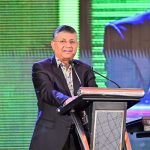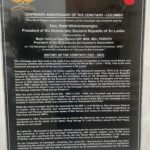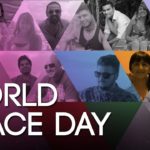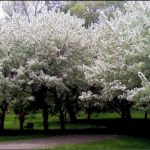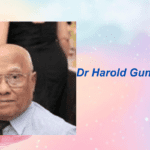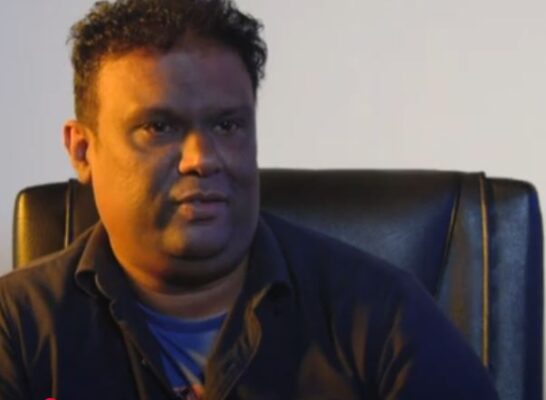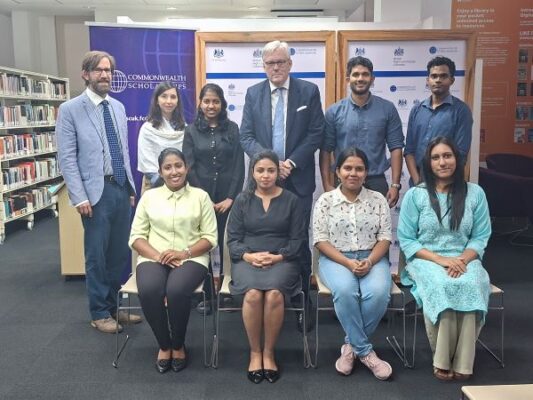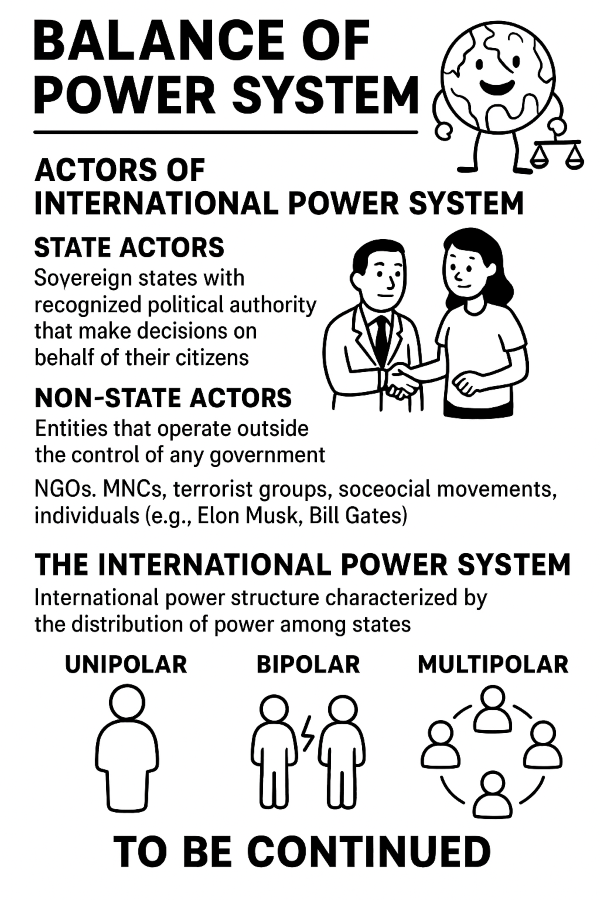Dr.Leel Gunasekara on his 92nd birthday, celebrated on December 9. – By Dr Gamini Kariyawasam


A special note dedicated to the reflections on the life and legacy of Leel Gunasekara on his 92nd birthday, celebrated on December 9.
In the mid-20th century, the administration of Sri Lanka’s nine provinces was entrusted to civil servants holding the prestigious rank of Government Agent (GA). Among them, Mr. Leel Gunasekara stood out as the Government Agent of Anuradhapura, the capital of Rajarata. One day, while the young, handsome GA was driving his jeep along the bank of the Kala Wewa, he noticed a beautiful village girl bathing alone in the lake’s blue waters. Mesmerized by the sight, he restrained his natural youthful impulses, instead channeling his feelings into poetic inspiration, recording his thoughts in his diary.
Image Source : dailymirror
Image Source : mpgsl
Leel Gunasekara was one of the pioneering civil servants who helped transform the bureaucratic culture of the 1950s and 1960s. Fluent in English, he moved comfortably among the upper classes, yet his leadership style reflected a deep commitment to serving ordinary people. In contrast to the old guard of civil servants, who often remained aloof from the public and relied on intermediaries such as arachchis (uniformed servants) to interact with villagers, Gunasekara adopted an open-door policy.
When Mr. Gunasekara was transferred to Kegalle as the new District Government Agent, he famously kept all the doors and windows of his office open—not just to let in fresh air but also to welcome the ideas and concerns of the public directly. To remind Kegalle’s residents of their heritage, he hung a “ඉර හද කොඩිය “-“sun-Moon flag,” the ancient symbol of Hatara Korala, on his office wall. He replaced English signage with Sinhala, renaming the Residency—the official residence of the Disapathi—as Disapathi Mandir, reflecting a renewed focus on cultural identity.
Early Life and Education
Born on December 9, 1932, in Jamburaliya, Salpitikorala, Leel Gunasekara was the seventh of eight children born to Don Saranelis Gunasekara Haputantri and Dona Podinona of Talagala. He began his education at Jamburaliya Mixed School, securing a scholarship in 1943 to St. John’s College, Panadura. Tragically, his father passed away the same year, prompting the family to relocate to Matale. There, Leel attended St. Thomas’ College and later St. Sylvester’s College, Kandy, for advanced-level studies.
In 1952, he entered the University of Peradeniya, earning a Bachelor’s degree in 1955. His professional journey began in 1956 as a graduate teacher at Matale Vijaya Vidyalaya.
Reminiscing about Peradeni University where Dr. Leal Gunasekara studied
In 1957, he reached a professional break point where he had to choose the right path. At the same time, the results of the foreign service examination in which he appeared are also released, marking his victory. The patriotism that was dear to his heart led him to join the Ceylon Civil Service to serve his motherland.
He got married on June 29, 1967 when he was on duty as Ratnapura District Government Agent. His bride is Miss Indumati Wickramasinghe.
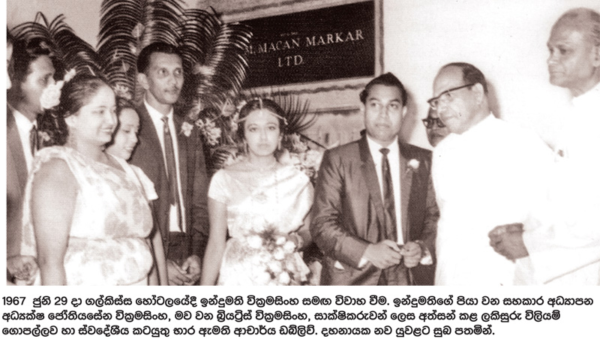
“My son Leel Gunasekara is the Disapathi
Dear Indumati, the bride who took over
The day of coming home is in the evening
The invitation to the festival is dear to you.
““මගෙ පුතු ලීල් ගුණසේකර දිසාපති
අතිනත ගත් මනාලිය ප්රිය ඉන්දුමති
ගෙදරට එන දවස හවසට යෙදී ඇතී
උළෙලට ඇරයුමයි ඔබ හට සිතින් බැතී “
He once told us that it was his mother who prepared the above-mentioned invitation card for his wedding.
The two lovely daughters named Vipuli and Manjula brightened their married life.


With his eldest daughter
Civil Service Career
On April 25, 1957, he was called for training as a civil service cadet officer in the Treasury Department. In August 1957, he was assigned to the post of civil service cadet officer in Mannar Kachcheri. He then served as a popular district government Agent in Mannar, Anuradhapura, Kegalle, Ratnapura and Kalutara districts in the district administration.
As a first-class senior officer of the Ceylon Civil Service, Mr. Leel Gunasekara has held high-level positions in several important ministries such as Defense, Foreign Affairs, Youth Affairs, Cultural Affairs and Social Services. The highest responsibility assigned to Mr. Gunasekara in Sri Lanka was the position of Secretary to the Cabinet of Prime Minister Sirimavo Bandaranaike. We remember how he made a unique contribution to rehabilitate nearly 20,000 youths involved in the 1971 rebellion.

When the law and order in the country was lost, Mr. Stanley Senanayake, who was the then Inspector General of Police, was abroad, Prime Minister Sirimavo Bandaranaike appointed Mr. Leel Gunasekara as the Inspector General of Police.
Leel Gunasekara was not only an excellent public servant. He is evaluated as a national portrait who has performed a great mission for the sake of literary, cultural and social service innovation as well as for the establishment of ethnic harmony.
From 1967, he established the Sinhala Writers’ Organization, which included Tamil writers, to unify the two main ethnic groups, and he was able to alleviate the ethnic polarization between the Sinhalese and Tamil communities to some extent. As the director of social services, Mr. Leel Gunasekara represented Sri Lanka at the United Nations in Vienna in 1982. Attended the World Conference on Aging. He is a great orator who is highly respected locally and internationally. He naturally had a unique ability to see and explain a problem from an analytical perspective.

Contributions to Literature and Society
Leel Gunasekara was not just an exceptional administrator; he was also a gifted writer and a social reformer. He championed the causes of social development, cultural preservation, and community upliftment. Among his notable contributions were his efforts to bridge ethnic divides through the Sinhala Writers’ Organization, which included Tamil writers, fostering cultural unity between the two communities.
A prolific author, Gunasekara wrote three novels, a collection of short stories, an anthology of poetry, and seven children’s books.
His first novel, Pethsama (පෙත්සම ), is a sociological study of rural life in the North Central Province. It poignantly explores the hardships of villagers, highlighting their struggles with nature and society.
“For the people of the kingdom, nature brings more sorrow than happiness; if they get water, their fields will flourish. They do not have the strength to control the environment. They have to deal with nature as well as society. In the preface to the petition, Leal summarizes the theme of the story. At the end of the petition story, Leal comes close to the style of folk poetry and perfectly embodies the endless and helpless poor life story of the villager he was heartbroken by.
Even if it rains, sorrow comes
Even if there is a drought, there will be sorrow
Even if an elephant jumps, sorrow will come
We are poor and sad
If you look up, you can see the blue sky
If you look at the ground, there is the great land
We are torn between these two
My God Ayiyanayaka, why don’t you look?
“‘වැස්සක් ආවත් දුක පැමිණෙනවා
නියගක් ආවත් දුක පැමිණෙනවා
අලියෙක් පැන්නත් දුක පැමිණෙනවා
දුප්පත් අපටම දුක පැමිණෙනවා
උඩ බැලුවොත් නිල් අහස පෙනෙන්නේ
බිම බැලුවොත් මහා පොළව තිබෙන්නේ
මේ දෙක අතරෙය අප තෙරපෙන්නේ
අයියන දෙවියනි ඇයි නොබලන්නේ”
Gunasekara’s collection of short stories, The Territory of the Sun-and-Moon (ඉර හද කොඩියට අධිපති පෙදෙසේ ) , and his children’s book Buhutigé Naeyo (බුහුටිගේ නෑයෝ ), are celebrated for their depth and creativity.
His second novel,( අත්සන )The Signature, delves into the land and livelihood issues faced by peasants, while his third, Man Nethida (මං නැතිදා ), further solidifies his reputation as a storyteller deeply connected to grassroots realities.

His anthology of poetry, The Triangle Struggle ( ත්රීකෝණ අරගලය ), showcases his poetic brilliance.
Later Years
After retiring from government service, Gunasekara held significant positions, including National Director of HelpAge Sri Lanka. He also served as Chancellor of Rajarata University, returning to Anuradhapura in a symbolic full-circle journey.It seems that fate has given him another chance to return to Anuradhapura in his retirement, where he held the position of G A in the early period when he joined the civil service.
At the age of 73, he earned a PhD in Gerontology from the University of Sri Jayewardenepura, demonstrating his lifelong commitment to learning and serving humanity.
Leal Gunasekara Guna Ruwa Suvada
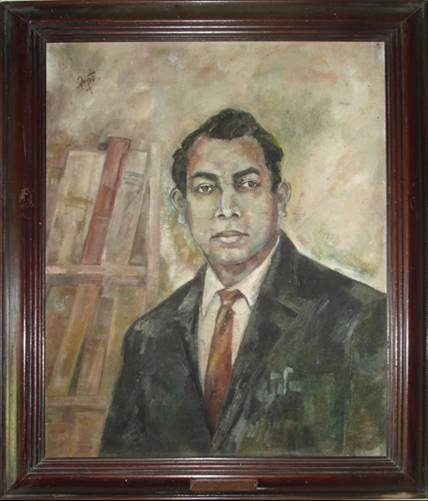
Legacy
Leel Gunasekara’s contributions to administration, literature, and society are monumental. His innovative reforms, compassionate public service, and imaginative writings have left an indelible mark on Sri Lanka. On his 92nd birthday, we celebrate a life full of purpose, creativity, and humanity.
Dr. Gamini Kariyawasam



.jpg)
